Paul v Walters tells the inspiring story of MANAMU, a studio for woven steel jewellery on a remote Indonesian island.
Ah, Sumba, you are so far away. So much so that today, we refer to you as the “forgotten island.”
It was aeons ago when you tumbled out of the volcanic southern archipelago and drifted south until you were closer to Australia than to Indonesia.
Once separated from your exotic, volcanic cousins, Bali, Lombok and Flores, you joined the Lesser Sunda Islands and quietly morphed into an enchanting structure of dry swathes of limestone hills and vast swathes of undulating savannah until, today, your physical characteristics bear no relation to your northern neighbours you left so long ago.
You became a place apart.
Now, wild horses roam your palm-fringed beaches, and on the undulating dirt roads, we see more buffaloes than cars. Your shadow-draped natural pools and mythical surf break onto shores the colour of snow while creating dramatic blow holes along the limestone cliffs.
Your indigenous people, with their mythical Marapu belief system, worship their ancestors buried in giant, megalithic tombs. Villages of thatched, pointy-roofed homes are scattered throughout the plains and hilltops where betel-nut-chewing women spin elaborate Ikat fabrics emblazoned with geometric patterns of seashells, hand-dyed with indigo leaves, root bark and powdered turmeric.
The tall symbolic grass roofs play host to nominally protestant villagers who pay their respects to the spiritual forces with bloody sacrificial rites.
This is an island of shamanic priests practising their ancient rites where time has stood still for centuries. There are no sprawling shopping malls, cinemas and supermarkets; commerce here moves slowly where goods and chattels are sold in markets or dimly lit stores scattered across the small villages that dot the landscape.
Visitors are often confronted with dire poverty, tribalism, and sacrificial rituals. It hasn’t experienced anything like the overdevelopment seen across its northern neighbours, where the Indonesian government has recognised the value of tourism and embraced the mighty lure of the tourist dollar. Yet, Sumba has, as always, been overlooked. It is indeed still the forgotten island.
Poverty is deeply rooted here amongst the seven hundred-odd thousand Sumbanese, bereft of government assistance, which, over time, resulted in this province being far and away the poorest area of the country. They are, however, a resilient people. Hard-working farmers and skilled artisans whose creativity flows through their veins like pristine streams and rivers filling a peaceful lake.
It often takes something or someone from “outside” to recognise an opportunity to empower the local indigenous population to bring their skills and expertise to the attention of the “outside world”.
It was in 2019 when the company MANAMU, headed by Melania Karolina, a long-term resident of Bali, embarked on a quest to empower the Sumbanese artisans to keep their unique, traditional crafts alive.
The weaving of stainless-steel wire into objects de art and the fashioning of that self-same wire into exquisite, minimalist jewellery pieces would be right at home at any high-end luxury store in the West.
The time had come.
- Trilogy bracelets in Steel, Copper and Brass (2022
- Steel Artwork
- Steel Jewellery, 2023
- Our metal weaving process, 2022
- Love & passion for preserving our near-lost art of traditional metal weaving, 2022
Several skilled artisans were encouraged to relocate to the island of Bali and into MANAMU’s studio, where they were introduced to the techniques and modern designs and, more importantly, expand the volume of their creations for export to the rest of the world.
In a cruel twist of fate just one year after the creation of the business, COVID-19 struck with the brutal force of a giant tsunami, effectively paralysing the company.
MANAMU’s philosophy when founding the business was to preserve these artisans’ skills via an economically self-sustaining environment. Undeterred by the huge obstacles which confronted them, they battled on. With no outside help, MANAMU held on by its fingertips, and even in those dark times, the artisans increased their incomes by a staggering 66%. MANAMU’s founders and support staff had made it their quest to ensure the business survived, and promises made to artisans were promises ultimately kept.
New clients and commissioned pieces became the focus of building the brand. With limited funds and a burning desire to keep the company alive, sacrifices were made, and endless rounds of travel to conferences, design shows, and potential clients to showcase innovations and creations became the order of the day. To achieve success, the artisans had to learn and adapt their creations to appeal to the needs of discerning clients in Maldives, Paris, New York and beyond.
MANAMU, realising the pitfalls of concentrating solely on one design stream, broke with tradition and forged into the homeware sector with innovative designs and pieces that simply, “stood out from the crowd.”
As the pandemic receded, the persistence, patience and sheer hard work began to pay off, a testament to the collaboration between MANAMU’s management and the core of the business, the Sumbanese artisans who interpret the commissions and deliver, time after time, stunning creations that are now gracing some of the leading hotels, homes, and businesses around the world.
MANAMU has been the vehicle to help preserve the near-lost art of traditional metal weaving, helping to keep the forgotten stories and traditions of Sumba alive at home and abroad.
Long may it last.
Melania Karolina is the Founder of MANAMU. After a 20-year career in the international corporate world, Melania returned to Indonesia and settled on the island of Bali, Indonesia. She recognized the talent and skills of the metal weaving artisans and is determined to revive and advance this art form in a sustainable and successful contemporary context. Follow @manamu.handwoven and visit www.manamu.id.
Paul v Walters is the best-selling author of several novels and anthologies of short stories. In addition, he scribbles for several international travel and vox pop journals when he is not cocooned in sloth and procrastination in his house in Bali. Visit www.paulvwalters.net

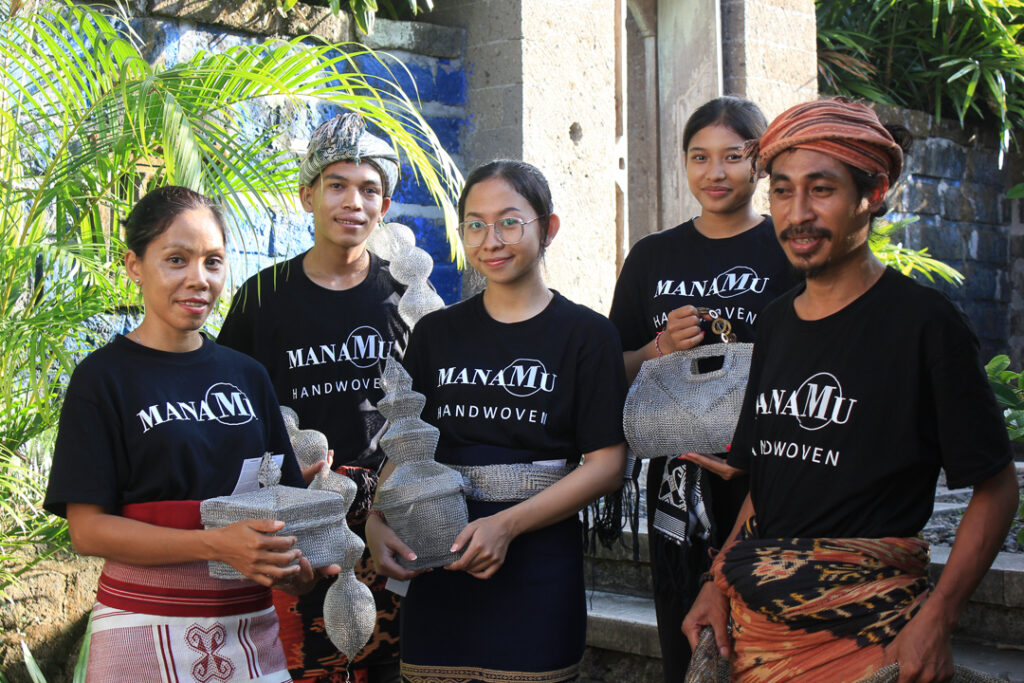

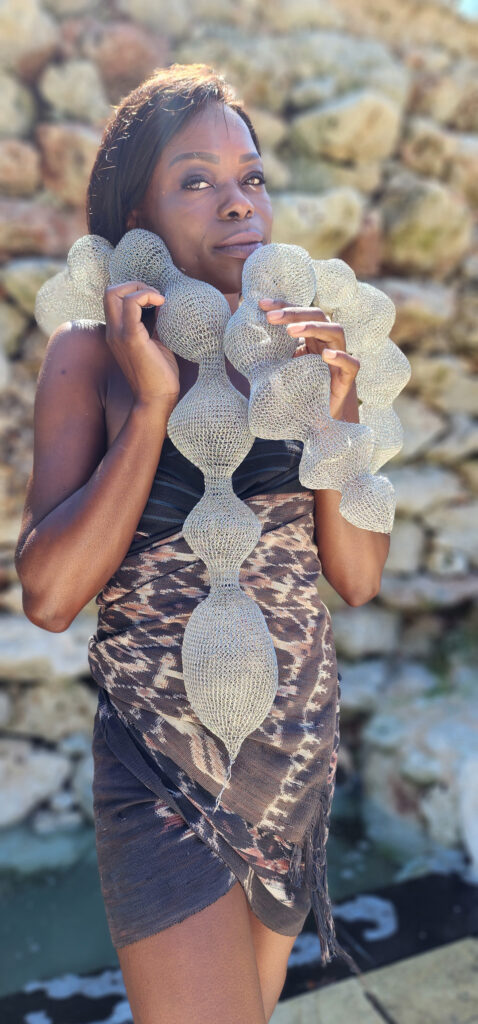
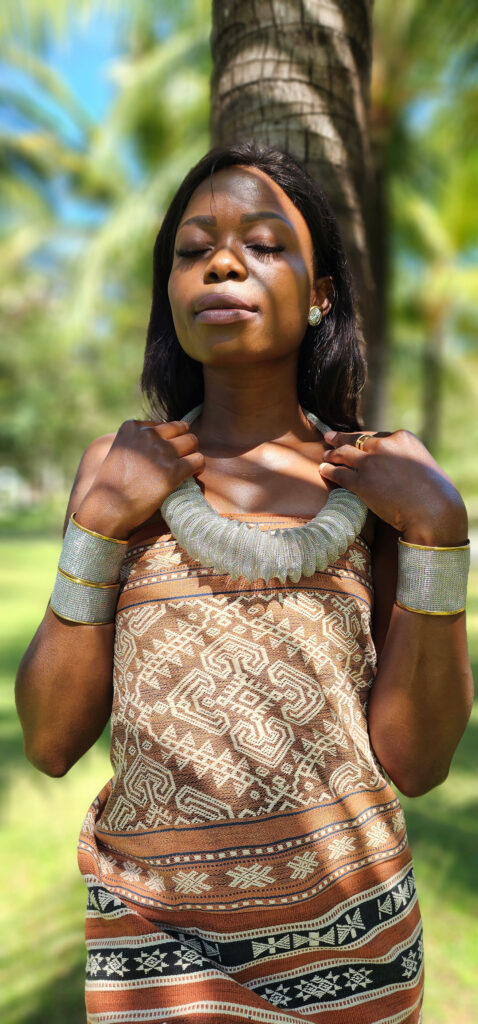
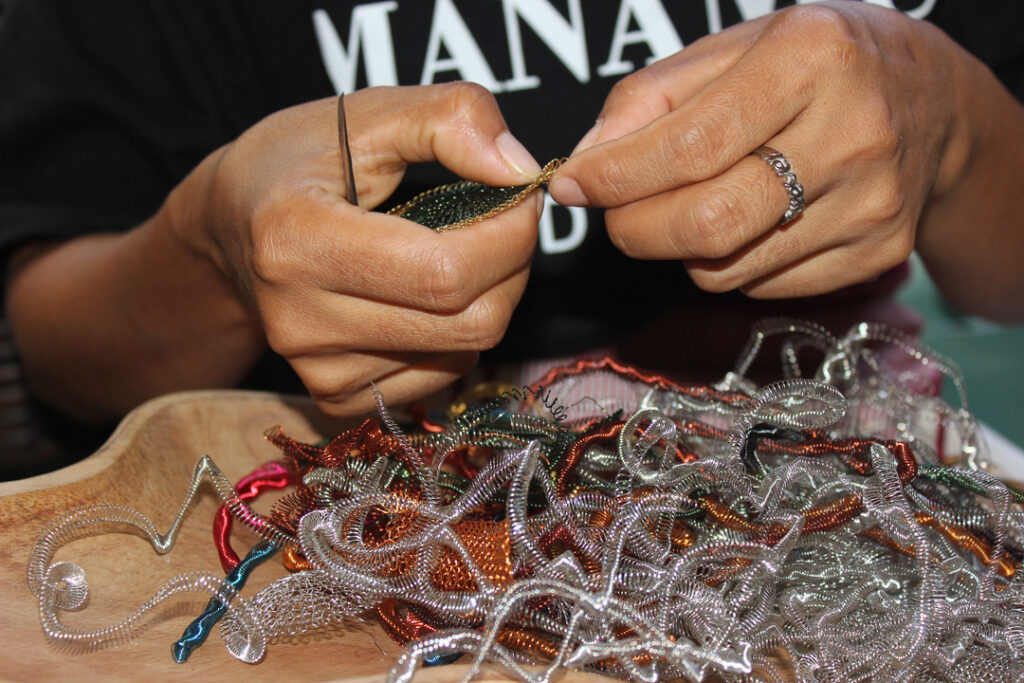
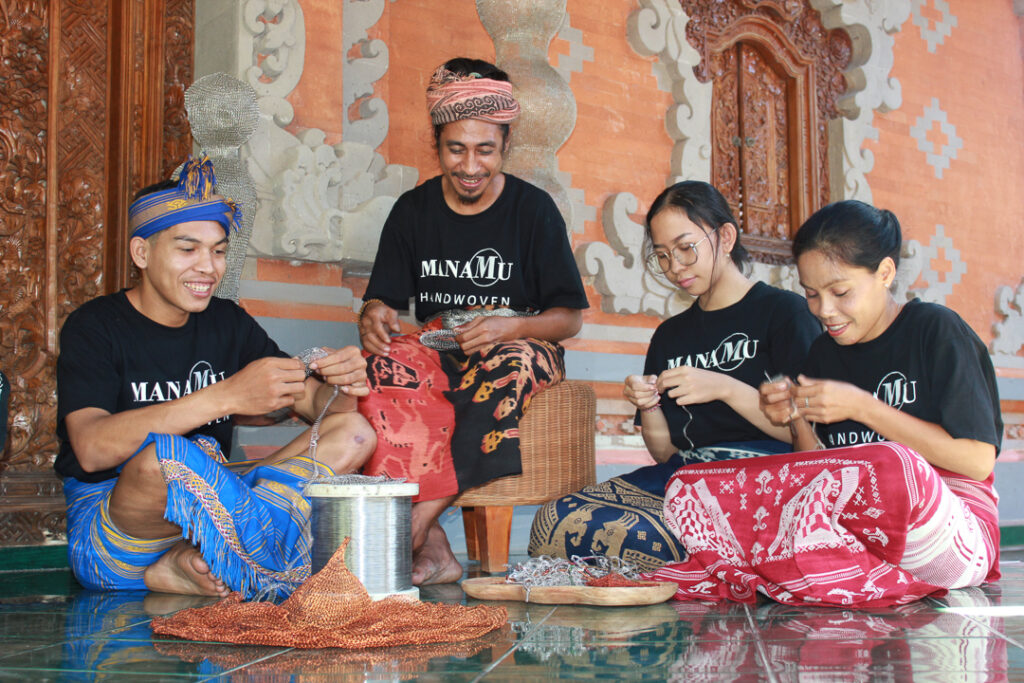

Comments
Que historia tan linda sobre la habilidad de los artesanos para transformar en objetos bellos alambres de acero colorido y atractivo. Grandioso ejemplo de creatividad para resolver situaciones económicas y de supervivencia por medio de un oficio artesanal. Es un ejemplo importante de la Isla Olvidad para miles de comunidades que viven en pobreza en otras partes del mundo.
Wonderful looking works, and the most hopeful story I’ve heard in a long time.
Excellent piece of information about this never deem possible art, the artisans are incredibly talented! May MANAMU find its success world wide as it certainly
deserves, bravo Melania!